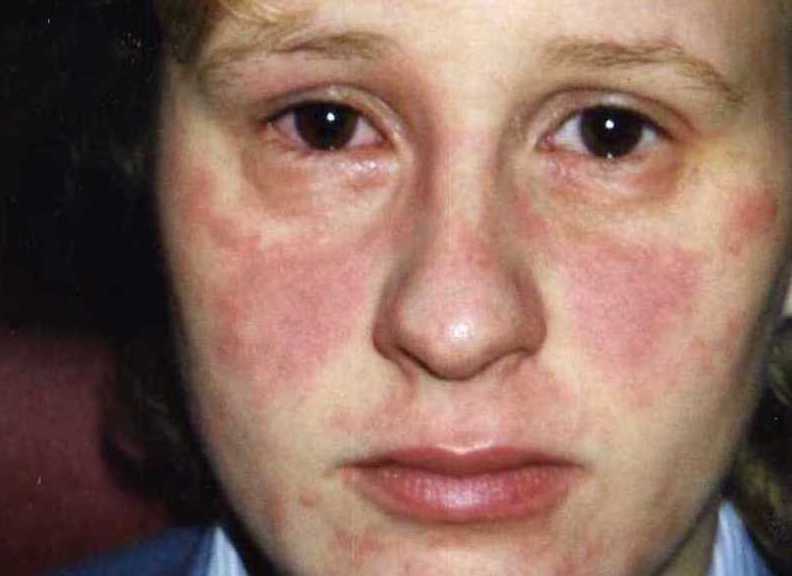This week is National Eczema Week. Run by the National Eczema Society, the initiative aims to support all those suffering with the condition and how to best manage living with it. This year’s theme is confidence – whether this is to feel confident about managing eczema or feeling the confidence to ask for the right medical help.
Having suffered with the condition for many years, Approach MD Suzanne Watson is a trustee of the National Eczema Society; helping the charity fulfil its mission of providing support for those living with eczema and their families.
At 24, Suzanne took the brave decision to speak publicly about her experiences and help end the stigma around eczema. As part of National Eczema Week and to spread awareness of the struggles people face, here is her account of her experience with the condition:
Suzanne’s story
The next time you have an itch – anywhere on your body – just try not to scratch.
Leave it for as long as you possibly can and when you finally give in, notice the feeling of sheer relief.
Imagine a similar sensation, but this time it is all over your body. You can’t pinpoint an area that doesn’t itch. But the itching is far more intense now and actually feels like a million tiny creatures running around just under the surface of your skin.
Now try not to scratch.
Eczema affects approximately one in 12 adults in Great Britain. Every day, like me, they experience the torment of being torn between scratching the skin to get rid of the terrible, deep-rooted itch and the resulting pain, inflammation and bleeding form the damage of your own nails.
At 24, I am now experiencing the full-blown emotional and physical effects of eczema. It started at the age of 14 and apart from the odd few months of relief here and there, has got progressively worse.
After 10 years, I am also fully aware of the side effects and dangers of steroid creams – repeatedly prescribed for me by doctors who seem to take very little interest in my condition. Unfortunately their side effects make me feel like I’m doing more damage in the long run.
Usually within a few hours of using steroid cream my skin will begin to calm down. Only slightly but enough to take the edge off my panic. It seems like the only form of relief and yet people tell me not to use it.
“You must try not to use those chemical creams – all they do is push the eczema back under the surface.” “They’ll make it worse in the long run. Imagine having skin like an old woman by the time you’re 40.” “I’ve seen people whose skin has torn like paper after years of using steroid creams.”
In my case as a severe flare-up may be caused by worry, stress, contact with animals or sometimes just for the sheer hell of it. It starts in the more common places – behind the knees, elbows, creases in the arms.
Then it starts to spread. Ankles, calves, thighs, buttocks, trunk, chest, neck, face, forehead, hairline and ears.
And the times I’ve been told not to scratch. “Don’t do that it looks terrible.” “Stop it, you’re making me itch.” “Can’t you just leave it – sit on your hands.” “Scratch around it – try to relax.”
Relax? When your body’s on fire. When your skin is actually weeping because you’ve scratched away so many layers. The extremes of temperature usually make me shake and shiver because I’m losing so much body heat through the inflammation. Can you imagine relaxing?
It’s as if my body is tormenting itself. How can it continue to itch when it’s so sore? “Go on, make it worse, just one little scratch and it’ll feel much better,” it seems to say.
Trouble is, one little scratch usually materialises into a frenzied clawing which spreads across my entire body until I’m exhausted, sore and feel a complete failure for giving in.
I get scared during flare-ups because I realise I’m losing control. I can’t stop myself from scratching and all of a sudden I realise that with my own bare hands, I am actually mutilating myself. Imagine the horror of scratching the back of your knees, feeling it getting wet beneath your fingers as you draw blood but you just can’t stop…
Clawing as deep as possible into your chest to find you’ve gouged away chunks of skin leaving holes and trails where your nails have torn through the once delicate skin…
Standing up after sitting down only to find you can’t straighten your legs because the skin has dried up and will split if you force it. Living with the lingering smell as your body weeps from the sores. Realising you can’t possibly look attractive to your partner and feeling guilty because the physical side of your relationship is just too painful or uncomfortable to cope with.
Of course the relentless itching doesn’t stop at night. Sometimes it is even worse as the warmth of my body is contained in the sheets. Even the weight of the bedding can irritate as it rests on my skin.
The nights of constant scratching, leaning out to smear moisturising cream to east the skin that after just 15 minutes has dried out again takes its toll on everyday life leaving me tired, irritable and even less able to fight the resulting depression. If I am particularly stressed or having a severe flare-up, I am plagued by fitful dreams that appear designed to make me scratch.
I remember dreaming once that my body was a map of the world and each part of me a different country. By scratching certain areas like my legs, I felt I was actually helping the poor people of that country. Somehow my mind was making me scratch subconsciously through my sleep.
I once overheard someone say I was feeling sorry for myself and wasn’t being positive enough to overcome the problem and sometimes I feel family and friends must get bored when they ask how my skin is only to be met with the same old story of sleepless nights, bad dreams and “sore bits”.
I’ve even been told I’m lucky to have arms and legs – there are plenty of people who don’t have the use of their limbs.
I know. And it makes me feel terrible to be moaning. But it doesn’t stop the itch, the pain or the distress.
Some mornings I actually don’t want to get out of bed because I’m so sore and I know moving is going to hurt, so I’d rather stay tucked up, lying still and cocooned in my quilt rather than have to face a day-long routine of bathing, putting on cream and facing the world and the stares of people who wonder what’s wrong.
Parts of my skin are now toughening up after years of “nail abuse”. There are areas on my arms and legs which don’t tan in the summer because of the scar tissue and I’m left with two tone blotches like a patchwork quilt.
The skin around my wrists and ankles has become wizened and thin after years of using steroid creams and the skin around my chest looks like cellophane when pressed.
I know I must sound full of self pity – but I have at last found a way of expressing my feelings at one go with nobody talking back at me.
People must understand the reality of eczema. But because it’s not life-threatening it’s something many people turn a blind eye to. We need more support from the National Health Service, from our GPs and from counsellors. People in the medical profession need educating to improve their understanding of the condition.
A couple of years ago my skin was inflamed, cracked and weeping and a doctor told me to make it look worse by scratching harder to justify getting me a hospital bed. Hard to believe isn’t it?
So what should a parent, partner or friend say or do for someone who’s suffering? People are different, but personally I just want to be held – providing it’s not too painful. That’s usually the time when my mum knows best because she holds me, strokes my head and never tires of rocking and cradling me in her arms.
A supportive partner is a big help too. At times I’ve felt like “The Fly” during metamorphosis, but my husband still tells me he loves me no matter how bad my skin looks or feels. I don’t always believe him and occasionally break into self-destruct mode where nothing anybody says makes any difference.
I know I’m one of the lucky ones who has a supportive family because there are many who don’t. That’s why support from organisations like the National Eczema Society are so important to stop people feeling isolated and alone.
I am now trying homeopathic treatment after experimenting with faith healing, spiritual healing, yeast, dairy, and additive-free diets, internal and external use of Evening Primrose capsules, drinking soot mixed with milk (for the ‘beneficial’ sulphur content) and conventional drugs including hospital stays.
I know it’s going to be hard – it already is as I’m currently trying to cut down my use of steroid cream which I’ve been told with counteract the treatment.
The big crunch will be when the homeopathic remedy becomes a case of treating like with like which apparently will make my eczema worse before it gets better. If I can endure the agony I may be rid of it for ever and it might reduce the risk of passing the condition on to my children – a situation I simply can’t bear to think about.
When it’s really bad I sometimes feel I’d rather not have children than put them through this kind of suffering. So trying homeopathic remedies is my only remaining hope. If I want to avoid a lifetime of this, do I have any option?
If you’re suffering with the condition and are looking for support, get in touch with the National Eczema Society



